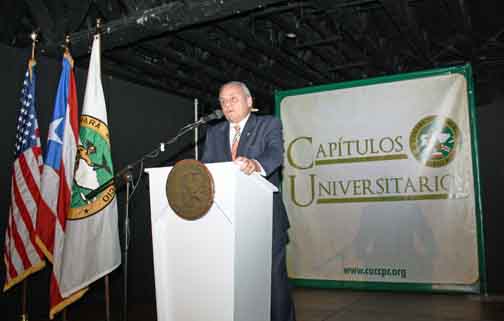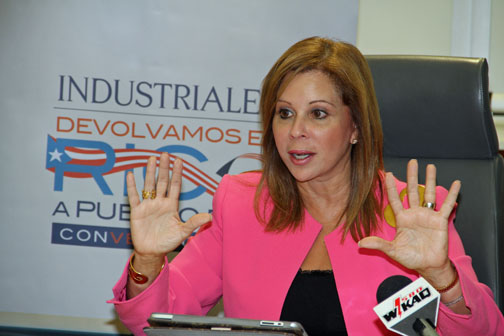CofC reacts to GAO report on Jones Act

The U.S. International Trade Commission should conduct a study similar to what the U.S. Government Accountability Office released last week when implementing a free trade agreement “to confirm the impact of the treaty on the economy, companies and consumers of the countries that sign the treaty to supplement the lack of data referenced by the GAO study itself,” the head of the Puerto Rico Chamber of Commerce (CofC) said Monday.
Meanwhile, CofC President Pedro Figueroa said although the GAO’s “Characteristics of the Islands Maritime Trade and Potential Effects of Modifiying the Jones Act” report acknowledges the Jones Act was designed to protect merchant shipping and ensure continuity of shipping service between the United States and Puerto Rico, the mandate may now be self-defeating.
“The Act that seeks to protect is defeating the very purpose for which it was created, by hurting the protected,” said Puerto Rico Chamber of Commerce (CofC) President Pablo Figueroa, upon analyzing the findings included in the
“This most likely reflects the accepted economic maximum that competition, not protection, is what reduces prices and increases quality of goods and services,” he said. “Protectionist laws although generally well-meaning, eliminate any pressure to be more efficient and innovative by distorting prices, hurting the economy and making companies subject to such protection less competitive.”
The GAO also acknowledges that American-flag vessels have almost run their 40-year productive life. Meanwhile, foreign, more modern ships have an average life of 12 years.
“Foreign merchant labor is more efficient, including shipbuilding processes and there has been an increase in foreign product imports using foreign vessels,” Figueroa said.
The study, he said repeatedly highlights “the absence of estimated data, verifiable and accurate product pricing, data on trade diversion and the legal complexity as justification that prevents measuring the economic impact of the Jones Act on Puerto Rico.”
The GAO released the findings of a study begun in May 2011, at the request of Resident Commissioner Pedro Pierluisi, saying, among other things, that the effects modifying the application of mandate “are highly uncertain, and various trade-offs could materialize depending on how the Act is modified.”
Furthermore, “the study recognizes that the U.S. merchant marine’s limited capacity to supply tankers for transporting fuel to Puerto Rico opens the door for us to request excluding the island from [Jones Act] laws for the purpose of transporting fuels,” said Figueroa.
In that respect, Pierluisi said he intends to introduce legislation to “relax the Jones Act to enable the shipment of natural gas and other fuel products from the U.S. mainland to Puerto Rico, thereby reducing the cost of electricity, improving air quality, and making Puerto Rico a more attractive place to raise a family and conduct business.”














